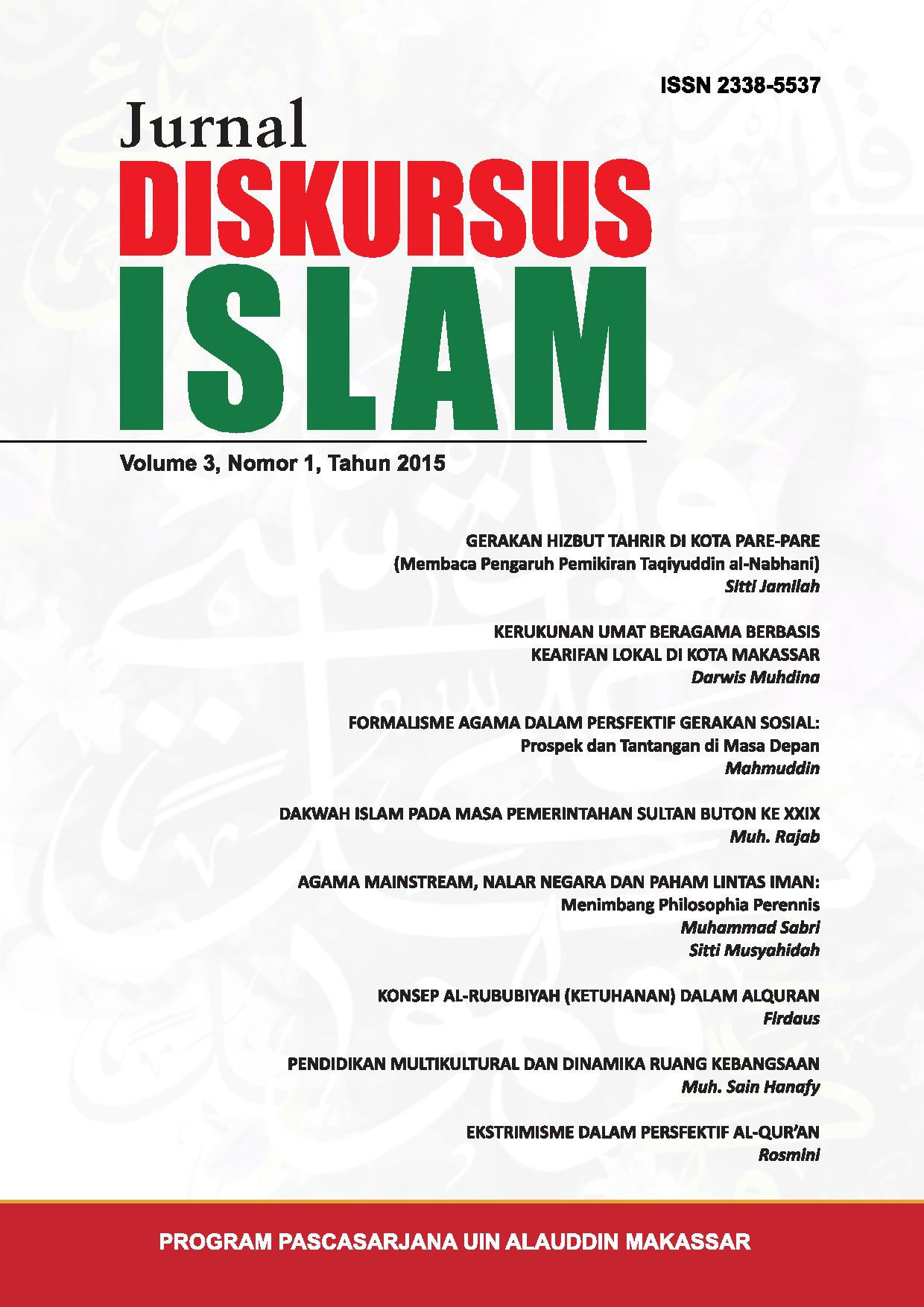Financial Technology Sebagai Solusi Potensial Market Yolo Style Gen Z Kota Makassar
Abstract
Penelitian ini bertujuan untuk mengetahui pola spending YOLO (You Only Live Once) style yang dijalani oleh Gen Z (Generasi Z) di kota Makassar lalu mengaitkannya dengan peran fintech sebagai solusi YOLO style Gen Z kota Makassar sebagai potensial market. Metode penelitian yang digunakan dalam penelitian ini adalah penelitian kualitatif dengan pendekatan fenomenologi. Adapun sumber data yang diperoleh dari data primer yang bersumber dari 9 responden Gen Z yang lahir dari rentang tahun 1995 sampai dengan tahun 2012. Hasil dari penelitian ini menemukan bahwa pola spending Gen Z YOLO style kota Makassar terbagi menjadi tiga tema, yakni pola spending terkait konsumsi terhadap experience, pola spending terkait present time, dan pola spending terkait prinsip dalam mengkonsumsi. Financial technology, baik konvensional terlebih lagi syariah, sangat cocok untuk diaplikasikan pada Gen Z YOLO style kota Makassar karena mampu memberikan solusi terhadap segala permasalah yang ditemukan pada tiga tema poloa spending tersebut.
References
Bhattacharjee, Amit, dan Cassie Mogilner. (2014). “Happines From Ordinary And Extraordinary Experiences”, JCR : Journal Of Consumer Research 41, no. 1 (2014): h. 1-17.
Christine, Nivita, dkk. (2021). “Kajian Yuridis Terhadap Pengaturan Dan Penerapan Financial Technology (Fintech) Dalam Bentuk Layanan Pinjam Meminjam Berbasis Teknologi Informasi Serta Dampak Disrupsinya”, Lex Privatum 9, no. 7: h. 18.
Dilasari, dkk. (2020). “Pengaruh Financial Literacy, Life Styles, Locus of Control Dan Demografi Terhadap Perilaku Konsumtif Generasi Milenial Di Kota Subang”, Journal Of Accounting For Suistainable Society (JASS) 2, no. 2: h. 56-77.
Driyarkara. (2006). Karya Lengkap Driyarkara (Jakarta: PT Gramedia), h.1322.
Gentles, Stepehen J dkk. (2015). “Sampling in Qualitative Research: Insights from an Overview of the Methods Literaturethe Methods Lite”, TQR: The Qualitative Report 20, no. 11: h. 1783.
Guest, Greg dkk. (2006). “How Many Interview Are Enough? An Experiment with Data Saturation And Variability”, FIELD METHODS 18, n0. 59: h. 59-82.
Kata Data Insight Center. (2021) “Perilaku Keuangan Generasi Z dan Y”, Kata Data Media Network : h. 20.
Laturette, Kazia dkk. (2021). “Literasi Keuangan Pada Generasi Z”, Jurnal Pendidikan Akuntansi (JPAK) 9, no. 1: h. 131-139.
Lee, Hojung dan Heesun Oh. (2017). “Well-Being Lifestyle and Consumption Value According to Consumers YOLO Orientation”, Archieves of Design Research 31, no. 1: h. 71-79.
Maharani, Yestias dkk. (2022). “Literasi Investasi Berbasis Aplikasi Smartphone Bagi Generasi Z”, Rahmatan Lil Alamin Journal of Community Services 2, no. 1: h. 30-37.
Mahendra, Rizal dkk. (2023). “Pengaruh Status Ekonomi, Literasi Keuangan, Pengelolaan Keuangan, Terhadap gaya Hidup Pada Generasi Z Dengan Perilaku Konsumtif”, Cakrawala 6, no. 1: h. 691-697.
Mauludin, dkk. (2022) , “Analisis Perilaku Konsumen Dalam Transaksi Di E-Commerce”, Proceedings Of Islamic Economics, Business, And Philantrophy 1, no. 1: h. 109-123.
Marginingsih, Ratnawaty. (2021). “Financial Technology (Fintech) Dalam Inklusi Keuangan Nasional di Masa Pandemi Covid-19”, Moneter: Jurnal Akuntansi dan Keuangan 8, no. 1: h. 58.
Moleong, Lexy J. (2016). Metodology Penelitian Kualitatif (Bandung: PT Remaja Rosdakarya, 2016), h. 6.
Mujib, Abdul. (2015) “Pendekatan Fenomenologi dalam Studi Islam”, Al-Tadzkiyyah: Jurnal Pendidikan Islam 6: h. 173.
Nasution, Abdul Fattah. (2023). Metode Peneitian Kualitatif (Cet. I: Bandung: CV Harfa Creative, 2023), h. 81.
.
Sabar, Wardihan dkk. (2022). “Gender education in the practice of women's agricultural laborers in Enrekang Regency”, JIPSINDO: Jurnal Pendidikan Ilmu Pengetahuan Sosial Indonesia 9, no. 02: h. 156.
Saryono. (2010). Metode Penelitian Kualitatif (Bandung: PT Alfabeta,), h.49.
Song, Hana. (2017). “YOLO And Sel- Control”, KJCS: Korean Journal of Child Studies 38, no. 5: h. 1-3.
Stillman, David dan Jonah Stillman. (2019). Gen Z: Memahami Karakter Generasi Baru yang Akan Mengubah Dunia Kerja (Jakarta: PT Gramedia Pustaka Utama, 2018) dikutip dari A Nindyah Ekandanda dan Syam Rachma Marcillia, “Preferensi Atribut Fisik Hunian Generasi Y dan Z di Yogyakarta”, SMART #4: Seminar on Architecture Research & Technology 4, no.1: h. 329.
Sugiyono. (2018). Metode Penelitian Kuantitatif, Kualitatif, dan R & D (Bandung: PT Alfabeta), h.15.
Tom O’D. dan Keith P. Ed. (2003). Qualitative Educational Research In Action: Doing and reflecting (London: RoutledgeFalmer Pub), h.44.
Umniyah, Irbatul. (2023).“Pengaruh Financial Literacy, Locus Of Control, Income, Hedonism Lifestyle Dan Optimism Terhadap Financial Behavior Generasi Milenial”, JIM : Jurnal Ilmu Manajemen 11, no. 3: h. 706-714
Copyright (c) 2024 Muh. Tajrim, Murtiadi Awalauddin, Abdul Wahid Haddade

This work is licensed under a Creative Commons Attribution-ShareAlike 4.0 International License.
Authors who publish with this journal agree to the following terms:
1) Authors retain copyright and grant the journal right of first publication with the work simultaneously licensed under a Creative Commons Attribution License that allows others to share the work with an acknowledgement of the work's authorship and initial publication in this journal.
2) Authors are able to enter into separate, additional contractual arrangements for the non-exclusive distribution of the journal's published version of the work (e.g., post it to an institutional repository or publish it in a book), with an acknowledgement of its initial publication in this journal.
3)Authors are permitted and encouraged to post their work online (e.g., in institutional repositories or on their website) prior to and during the submission process, as it can lead to productive exchanges, as well as earlier and greater citation of published work (See The Effect of Open Access).








